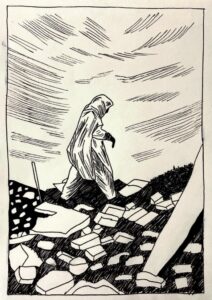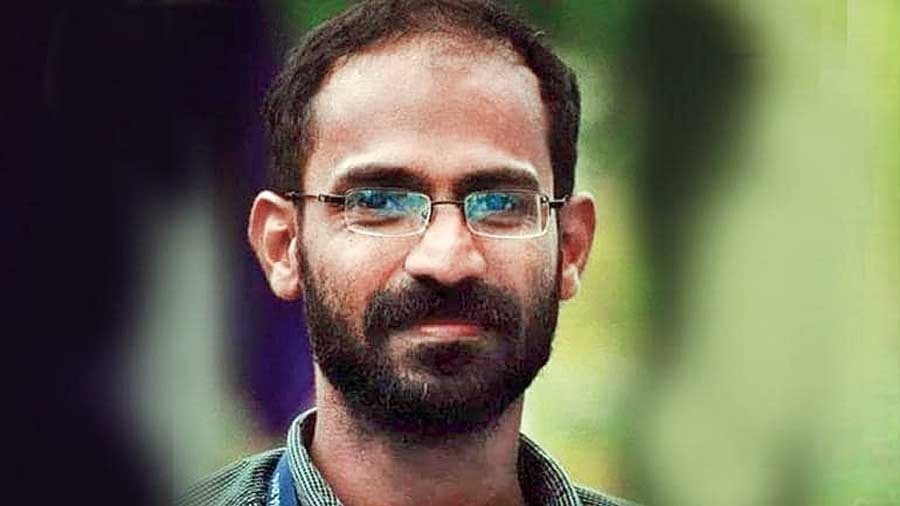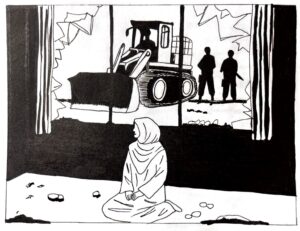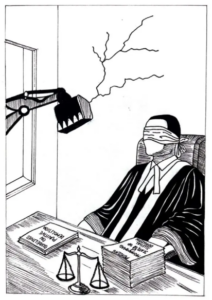

The 2021 World Press Freedom Index by Reporters Without Borders (RSF) ranked India at 142 out of 180 countries in the world. RSF noted that “India is one of the world’s most dangerous countries for journalists [… who are] exposed to every kind of attack, including police violence against reporters, ambushes by political activists and reprisals instigated by criminal groups or corrupt local officials.”
The Bharatiya Janata Party (BJP), led by Prime Minister Narendra Modi, came to power in India first in 2014 and for a second term in 2019. Since then, there have been consistent attacks on journalists who question or criticize the ruling dispensation. Violence pervades the profession of journalism in India today. While physical violence is the most visible manifestation, journalists in India face a range of threats including censorship, economic hardships, political pressures and job insecurity.
Journalists are routinely threatened, intimidated, arrested, booked and silenced through gag orders and concocted charges by the State. Those who speak up against the current Government are also at risk of being booked for sedition or arrested under draconian laws such as the Unlawful Activities (Prevention) Act (which unilaterally designates individuals as terrorists without the need to provide evidence), the National Security Act and the Public Security Act (PSA).
Farmers’ Protest
January 2021
On 20 September 2020, Rajya Sabha, the upper house of the Indian Parliament, passed in a haste by a voice vote three Farm Bills. Opposition parties and farmers’ unions protested the decision since the aim of the Bill is to push the agricultural sector in India from a government-run to a private-run sector. Farmers’ unions strongly oppose these Bills and demanded their complete revocation. Farmers have organized peaceful marches, sit-in protests and contestations across the country. The State resorted to tactics of repression and violence to counter the protests. First Information Reports (FIRs) have been filed against those who protested and the Police arrested journalists, labor union representatives and farmers. Police brutality and custodial violence have been routinely used against protesting farmers and those who have been arrested.
Mandeep Punia (Freelance journalist) faced detention and arrest at the Singhu border. Dharmender Singh (Online News India) faced detention at the Singhu border.
The Uttar Pradesh, Madhya Pradesh, Karnataka and Haryana Police filed FIRs against six journalists and editors – Rajdeep Sardesai (India Today), Mrinal Pande (Prasar Bharati), Zafar Agha (Qaumi Awaz), Paresh Nath, Anant Nath and Vinod K Jose (The Caravan) for sedition, criminal conspiracy and promoting enmity for reporting and tweeting on the death of a protester during the Republic Day tractor rally organized by farmers protesting against the Indian government’s farm laws. The Delhi police also filed a case against them.
The Uttar Pradesh Police filed an FIR against Siddharth Varadarajan (The Wire) and Ismat Ara (The Wire) for tweeting an article published by the news website on the farmer who died during the Republic Day parade.
Anti- CAA Protests
December 2019-February 2020
On 11 December 2019 the Indian Parliament passed the Citizenship Amendment Act (CAA) and the National Register of Citizens (NRC). These laws fast-track granting citizenship to illegal migrants from India’s neighboring countries except if they are Muslim. The passing of the CAA and the NRC sparked peaceful protests across the country that the Police countered with disproportionate violence. In Delhi, peaceful sit-ins gained momentum and widespread media coverage. The anti-CAA protests marked the first unified act of dissent against the ruling Government since it was first elected in 2014 and journalists covering this significant moment in history were subjected to threats, intimidation, FIRs and assault by the Police.
Journalists including Sanjay K Jha (The Telegraph) and SK Pandey (senior journalist) were physically assaulted by the police, while other journalists including Rajesh Kumar, Parthiv Kumar, Shivesh Garg and Arvind Singh were “forcibly taken away to an unknown destination- probably a distant detention centre or police station” according to a Press Club of India condemnation statement.
Dinesh R and Wasim Sayeed of Asianet News, a prominent Malayalam news channel – were physically assaulted in the national capital during the coverage of the protests by Jamia Millia Islamia students against the Citizenship Amendment Act.
Arun Shankar and cameraman Vaishakh Jayapalan of Mathrubhumi News were brutally attacked by the Delhi Police while they were covering the protest. They had been covering the massive anti-CAA stir at Delhi Gate in New Delhi.
Asian News International (ANI) reporter Ujjwal Roy and cameraperson Sarabjeet Singh were assaulted while covering protests near Jamia Millia Islamia University Gate-1 on 16 December 2020 in New Delhi.
Jitendra Sharma, Neeraj Gaur, (reporters at Zee News) and cameraperson Qamar Khan were heckled and assaulted by the protesters from Jamia area of New Delhi.
Sidharth Ravi (The Hindu) and Ayush Tiwari (Newslaundry) were threatened and intimidated. Rohan Venkataramakrishnan (Scroll.in) and Ashutosh Mishra and Crew (Aaj Tak and India Today), Shaheen Abdulla (Maktoob Media), Bushra Sheikh (BBC), Shariq Adeel Yousuf (Pal Pal news), Jaideep (Zee News), were physically assaulted.
In Uttar Pradesh, Omar Rashid (The Hindu) was detained and Pradeepika Saraswat was arrested. Manash Jyoti Baruah (Mirror of Assam) was summoned and questioned by the Police in Assam.
Delhi Pogrom
23 – 29 February 2020
Between 23 and 29 February 2020, during the anti-CAA/NRC protests, violence broke out in North East Delhi and spread across many neighborhoods in the city. The violence lasted for four days and left 53 people dead, of whom 39 were Muslims. Journalists covering the Delhi Pogrom were subjected to varying degrees of violence including threats, intimidation, physical assault and attacks. There were reports of journalists being stopped and asked for their names and religious identities, several others were at the receiving end of mob violence. In a situation where the State machinery was complicit in the communal violence that engulfed North East Delhi, journalists on the ground were left to fend for themselves and continue doing their jobs at great personal risk.
Saurabh Shukla and Arvind Gunasekar (NDTV) along with Runjhun Sharma (Reporter, CNN News18) were attacked while they were shooting a mob vandalizing a Muslim shrine.
NDTV’s Mariyam Alvi and cameraperson Sushil Rathee were injured after having been attacked by a mob in Northeast Delhi.
Soumya Pillai, Anvit Srivastava and Fareeha Ifthikar (journalists at The Hindustan Times) were attacked and threatened by a mob, asked to prove their religious identity and chased.
Other journalists who were threatened and intimidated include Ismat Ara (freelancer), Shivnarayan Rajpurohit (The Indian Express), Vijayta Lalwani ( Scroll.in), Tanushree Pandey ( India Today and Aaj Tak), Parvina Purkayastha (Times Now) and Sreya Chatterjee ( News X).
Akash Napa ( JK 24) was shot and injured by a mob while reporting.
Sushil Manav (freelancer) was stripped, identified and forced to chant the Hanuman Chalisa. He was beaten up with rods and let off after he was forced to drop his pants to reveal his identity as a Hindu.
Vinod Dua had an FIR filed against him by the Delhi Police based on the complaint of a BJP leader for “spreading fake news” about the Delhi Pogrom through his show on YouTube.
Sanchit Khanna‘s motorcycle was set ablaze, a group cornered him and deleted the pictures he had taken of the violence. The group also threatened and assaulted him.
Other instances of violence against journalists
May 2019 – August 2021
Ever since Prime Minister Narendra Modi’s BJP was re-elected in 2019, pressure has increased on the media to toe the Hindu nationalist government’s line. The coordinated hate campaigns waged on social media against journalists who question the Government or uncover the truth behind the Government’s actions elicit calls for these journalists to be murdered. The campaigns are particularly violent when the targets are women. Criminal prosecutions are often used to gag journalists critical of the authorities, with some prosecutors invoking Section 124a of the Indian Penal Code, under which “sedition” is punishable by life imprisonment. Journalists who have reported on crucial and sensitive issues have been attacked, assaulted and in some cases killed for their work.
Prashant Kanojia (freelance journalist): 1) An FIR was filed against him on 7 April 2020 accusing a reporter for making “objectionable remarks” on social media about Prime Minister Modi and Chief Minister Adityanath in connection with their handling of the lockdown; 2) On 8 June 2019 Kanojia was arrested from Delhi for his comments about Uttar Pradesh Chief Minister Adityanath on social media; 3) On 18 August 2021 Kanojia was arrested to face trial for a retweet that remained online for minutes.
The Uttar Pradesh Police filed a FIR against news website The Wire and two of its journalists – Seraj Ali and Mukul Chauhan – for allegedly spreading false information and trying to create religious animosity through a video about the demolition of a mosque in Barabanki district in May 2021.
The Wire and many other leading news outlets reported on a widely shared video from Uttar Pradesh’s Ghaziabad district, which allegedly depicted a group of Hindu men beating an elderly Muslim man, cutting off his beard, and forcing him to chant a Hindu slogan. Rana Ayyub (Independent journalist), Saba Naqvi (freelance journalist) and Mohammed Zubair (Alt News) tweeted about the video. An FIR was filed at the Loni Border police station in Ghaziabad, Uttar Pradesh for posting tweets which the Police alleged were misleading and unverified.
Sumedha Pal (NewsClick), Mohit Kumar (NewsClick), Hrishikesh Sharma (Mojo Story), Prabhat Kumar (Freelance journalist), Naomi Barton (The Wire), Nikita Jain (Freelance journalist) and Sumit Yadav (Independent journalist) were threatened and intimidated by the Police for covering the demolitions at Khori Gaon, Faridabad. Srishti Jatav (Dalit Times) was detailed while covering the slum demolitions in Delhi.
FIRs were filed against TV journalists – Bhupendra Pratap Singh, Abhishek Singh, Hemant Chowrasia, Ayush Kumar Singh and Umesh Kumar Sharma after they conducted a sting operation to show state ministers and Trinamool Congress Members of Legislative Assembly allegedly taking bribes.
On 11 August 2020, Shahid Tantray, Prabhjit Singh and a female journalist at The Caravan were assaulted by a mob while reporting on a story concerning a Delhi pogrom complainant. On 16 October 2020, the Delhi Police assaulted Ahan Penkar (The Caravan) while he was reporting in North Delhi. Penkar was reporting on a protest concerning the alleged rape and murder of a Dalit teenager in North Delhi.
An FIR was filed against reporter Nidhi Suresh (journalist at Newslaundry) in Uttar Pradesh after News18’s Deep Srivastava filed a defamation complaint against her. Reporter Manoj and the editor of another web portal, Bhadas Media, have also been named in the same FIR.
On 8 June 2019, Anuj Shukla and Ishita Singh (Nation Live News) were arrested by Uttar Pradesh police for sharing a video on Twitter which allegedly defamed the Uttar Pradesh Chief Minister Yogi Adityanath.
On 3 August 2021, Adani Ports and Special Economic Zone Limited, an Adani Group company, filed a civil defamation suit against Economic Times editor Bodhisatva Ganguli and the journalists who authored a report: Pavan Burugula and Nehal Chaliawala.
In September 2019 an FIR was filed against Ashish Tomar (Dainik Jagran), Shakeel Ahmed (News18) and three unidentified journalists for reporting how Dalit families were denied the right to draw water from a well in Bijnor, Uttar Pradesh.
In Madhya Pradesh, FIRs have been filed against Arvind Tiwari, Tansen Tiwari, Rajesh Chourasia, Mehfooz Khan, Shubham Shrivastava and Pankaj Soni.
A sedition case was filed against Vinod Dua which was later struck down by the Supreme Court of India.
In Uttar Pradesh, i) Siddique Kappan and Santosh Jaiswal were arrested; ii) FIRs have been filed against Baccha Gupta, Pawan Jaiswal, Jai Singh Chibber, Siddharth Varadarajan, Barkha Dutt, Sankalp Neb and Amitabh Rawat; iii) Krishna Tiwari, Santosh Kumar, Krishna Kumar Singh, Ameen Farooqui, Pateshwari Singh and Manoj Kumar Soni were physically assaulted; iv) Masihuzzama Ansari and Anuj Hanumat (Jan Express) were threatened; v) Akash Yadav was harassed and vi) Amit Sharma assaulted, tortured and detained by the Police.
Isravel Moses (Tamizhan TV), Chennakeshavalu (EV5), Sulabh Srivastava (ABP News, ABP Ganga), Parag Bhuyan (Pratidin Time) and Rakesh Singh (Rashtriya Swaroop) were killed.
In Manipur, Kishorechandra Wangkhem (The Frontier Manipur) was charged under the National Security Act, Paojel Chaoba (The Frontier Manipur) was served a notice under the new Information Technology rules (notice was later withdrawn).
In Karnataka, Manjunath (Raj News) and Devaraju (Samaya TV) were physically assaulted. In Punjab Major Singh Punjabi (Rozana Pehredar) and Hussan Lal (PTC Channel) were physically assaulted. In Haryana, Anoop Kundu had a defamation case filed against him.
A police complaint was filed against Patricia Mukhim (Shillong Times) in Meghalaya and The Cross Current (publication) in Assam.
In Bihar, FIRs were filed against Utkarsh Singh (Bihar Tak channel) and Utkarsh Singh (TV9 Bharatvarsh).
In Telangana, senior journalist N. Venugopal was charged under UAPA and the Telangana Public Security Act and Raghu Ramakrishnan (Tolivelugu) was arrested.
Anmol Pritam (National Dastak) and Tanveer Ali (TV9 Bharatvarsh) were harassed, threatened and intimidated in New Delhi.
In Gujarat, journalist Paranjoy Guha Thakurta had an arrest warrant issued against him and in Uttarakhand, Umesh Kumar Sharma (Samachar Plus) was charged with sedition and arrested.
In Khargone district, Madhya Pradesh, Pradeep Gangle, Asif Khan, Praveen Pal, Wahid Khan, Pawan Kumar Solanki, Dharmendra Chouhan, Sunil Patel, Harish Pathak and other local journalists have had FIRs filed against them for reporting and questioning the Police about the illegal sand mining in the region.
On 3 May 2020, two media persons (unannamed) – a reporter and a cameraperson from Kanak News were attacked by a forest official near Balukhand Konark Wildlife Sanctuary in Puri district, Odisha. They had gone to the sanctuary to document a report related to cyclone FANI when the attack took place
Gautam Navlakha was charged under the Unlawful Activities Prevention Act (UAPA) in the Elgar Parishad-Bhima Koregaon case. In 2018, he was put under house arrest by the Delhi High Court. Meanwhile, the Bombay high court refused to quash the FIR against him. On 16 March 2020, the Supreme Court dismissed his anticipatory bail plea saying that his petition cannot be maintained as he was accused under UAPA. The Supreme Court directed him on 16 March 2020 to surrender within three weeks, which was extended by one more week on 8 April 2020 due to the COVID-19 pandemic. He surrendered to the National Investigation Agency (NIA) on 14 April 2020.
COVID-19
March 2020 – August 2021
On 24 March 2020, the Indian Government imposed a strict nationwide lockdown with no warning for preparation. The Police enforced the curfew with unrestrained violence and videos of this brutality emerged online immediately. The Indian Government tried to suppress the reporting of COVID-19 ground realities by forcing journalists to publish only pre-approved information. Similarly, during the second wave of COVID-19 in India in 2021, journalists who have been painstakingly reporting from the field and who questioned the Government’s apathy and negligence have been threatened and accused of spreading rumors about the public health crisis. FIRs, summons, physical attacks, threats and intimidation were some of the common patterns of violence against journalists who reported on issues related to the pandemic.
The Rae Bareli (Uttar Pradesh) district administration issued notices to three local journalists – Shivam Kumar Trivedi (Daily News Activist), Anuj Awasthi (Kanwhizz Times), Durgesh Singh Chauhan (Rashtriya Kavach) – seeking information on the sources for a news article that was published and posted on social media.
An FIR was filed against Supriya Sharma (Scroll.in) and Scroll.in’s Editor-in-Chief (not named) for allegedly misrepresenting facts in a report on the impact of the lockdown in a village adopted by PM Modi.
The Varanasi District Magistrate issued a notice to journalist Vijay Vineet and Subhash Rai after the Jansandesh Times published a report claiming that members of the Musahar community (Dalit) were eating grass to survive at Koiripur village in Uttar Pradesh’s Varanasi district ever since the lockdown was announced.
Three FIRs were filed against Om Sharma (Divya Himachal) on three separate occasions (here, here and here).
Andrew Sam Raja Pandian, founder of a portal called SimpliCity was arrested in Coimbatore for filing news reports related to doctors facing a shortage of food and PPE kits at the Coimbatore Medical College Hospital and diversion of ration items by employees of PDS shops. The Police also detained Jerald Aruldas, the journalist and M. Balaji, the photographer who had reported on the stories.
In March and April 2020, multiple FIRS were filed against journalists – Ashwani Saini (freelancer), Vishal Anand (Aaj Tak), Jagat Bains (News18 Himachal), Jasveer Thakur and Somdev Sharma (Punjab Kesari). In May 2021, an FIR was filed against Gauri Shankar (Dainik Bhaskar) and Aman Bhardwaj (Zee Punjab Haryana Himachal) for their reporting on COVID-19 related issues in Himachal Pradesh.
In Uttar Pradesh, FIRs were filed against Ravindra Saxena (Today-24 news), Aashish Awasthi (Media Break) and four journalists from IANS and Business Insider and notices were sent to Manish Mishra (Jansandesh Times) and Manish Pandey (News1 India).
In Maharashtra, Rahul Kulkarni (ABP News) was arrested, an FIR was filed against Rahul Zori (TV9 Marathi), Uttkarsh Chaturvedi (ET Now) and Balasaheb Navgire (freelancer) was physically assaulted.
FIRs were filed against Sameer Dwivedi (Network18), K.K. Saxena and Tanveer Warsi (local journalist) in Madhya Pradesh.
Mushtaq Ahmad Ganai (Kashmir Observer) was physically assaulted and arrested in Jammu and Kashmir, Prasanjit Dutta (Nagaland Page) was physically assaulted, threatened and intimidated in Nagaland, Zubair Ahmed was arrested in the Andaman and Nicobar islands and Basant Sahu was arrested in Jharkhand, Pawan Chaudhary was arrested in Bihar, Damodharan (Sun News) was arrested in Tamil Nadu and Dhaval Patel (Face of Nation ) was arrested in Gujarat.
Abhilash Padachery (freelance journalist) was detained and taken into custody in Kerala, Neeraj Shivhare (Bastar Ki Aawaz) and Mahendar Singh Manral (Indian Express) were served summons/show cause notices in Chhattisgarh and New Delhi, respectively.
Jammu and Kashmir
May 2019 – August 2021
Over the last few years, journalists in Jammu and Kashmir have been subjected to various kinds of violence for doing their jobs. Journalists have been grappling with the basic issues of personal safety and the right to report facts. Reporters and journalists on the ground struggle to report in the midst of a media blackout, a military siege and a pandemic. They are often subjected to physical assault at the hands of the Army and the Jammu and Kashmir Police and are regularly charged under draconian laws while authorities carry out systemic threats, intimidation, harassment, physical assault and gag orders. Funding for journalists and media organizations are cut if they don’t amplify the Government’s propaganda. On 5 August 2019, the Indian Government stripped Jammu and Kashmir of its semi-autonomous status by unilaterally abrogating Article 370 of the Constitution and imposed an internet and communication shutdown that continued for more than six months. In 2020, the Jammu and Kashmir administration released a new media policy, aimed at “creating a sustained narrative on the functioning of the Government in media.” The new media policy, which seeks to regulate reporting in the new Union Territory, includes a mechanism that empowers the Government to decide what is “anti-social and anti-national” news.
On 14 June 2018, Shujaat Bukhari, a prominent journalist and one of the founders of Rising Kashmir, was killed in Srinagar. Investigations regarding the killing have been inconclusive and there have been no clear answers. On 27 August 2018, the Jammu and Kashmir Police took Aasif Sultan, a journalist with the monthly magazine Kashmir Narrator, into custody and formally arrested him a few days later. In February 2019, the Police filed a charge sheet accusing him of harboring militants. Three years on, he is still detained at the Srinagar Central Jail as he is tried for “complicity” in “harboring known terrorists” under the Unlawful Activities (Prevention) Act in Srinagar. In May 2021, authorities in Kashmir issued directions to the Health Services Department to not speak to journalists about the COVID-19 situation. In August 2021, journalists were assaulted when documenting the Muharram procession in Srinagar. Journalists in Kashmir work in an atmosphere of fear, repression and are constantly subjected to various forms of violence as the State functions with impunity.
On 17 December 2019, Aazan Javid of The Print and Anees Zargar of NewsClick, were physically assaulted by the Police while they were covering a protest in Srinagar.
On 30 November 2019, Hakeem Irfan of The Economic Times and Basharat Masood of The Indian Express were summoned by the Police and questioned about the sources of their stories.
On 23 December 2019, Basharat Masood and Safwat Zargar (Scroll.in) were stopped by the Police in Handwara, while they were on an assignment. They were taken to the office of the SP and questioned.
Several journalists including Waseem Andrabi, Bhat Burhan, Shafat Farooq and Sajad Hameed were blocked, harassed and beaten up when they were covering the Muharram procession in Srinagar on 17 August 2021. Many were injured and their equipment damaged.
In March 2021, Saqib Majeed (freelancer) and Shafat Farooq (BBC Urdu), two photojournalists were allegedly attacked by the Police while they filmed stones being hurled at the Police outside the Jamia Masjid in Srinagar.
On 8 February 2020, Naseer Ganie of Outlook and Haroon Nabi were summoned by the Police and questioned about reporting on a statement issued by Jammu and Kashmir Liberation Front (JKLF), which has been banned by the Government.
Fayaz Lolu (ETV Bharat), Mudasir Qadri (News18 Urdu) and Junaid Rafiq (TV 9) were detained and assaulted by the Police when covering the District Development Council polls in Anantnag, South Kashmir.
FIRs have been filed against Sajad Gul and Gowhar Geelani (freelancers), The Kashmir Walla, The Kashmiriyat, Peerzada Ashiq (The Hindu), Sajid Raina (Kashmir News Observer).
Qazi Shibli (The Kashmiriyat) has been arrested twice, Ghulam Jeelani Qadri (Daily Afaaq) has also been arrested, Irfan Amin Malik (Rising Kashmir) detained and questioned twice, Kamran Yousuf (NewsClick) also detained and Masrat Zahra was charged under UAPA and a female journalist was summoned.
Those physically assaulted, harassed and intimidated include independent journalists Qisar Mir, Mushtaq Ahmed, Gowhar Ali Wani, Aakash Hassan, Anuradha Bhasin (Kashmir Times) and Fahad Shah (The Kashmir Walla).
On 24 May 2021, 18 people including 5 journalists-Aijaz Ahmad Dar (Zee news), Irshad Ahmad (News18), Shahid Tak (ETV Bharat), Nazir Wani (Punjab Kesari) and Firdous Ahmad (News Nation)- were wounded by the Police. The journalists were witnessing a forest eviction drive in Kashmir’s Shopian district and the local Gujjar community was protesting against this drive.
On 31 August 2019, Gowhar Geelani was stopped by authorities at the Delhi airport and barred from flying abroad since a look-out notice had been issued against him by the Intelligence Bureau.
Freelance photojournalists Muzamil Mattoo, Idrees Abbas and Adil Abbas were physically assaulted while they were covering a religious gathering in the old city, Srinagar. Masrat Zahra was verbally abused by the Police.
On 1 September 2019, Peerzada Ashiq was summoned to a police station and pressured to reveal the sources of a story that he had done on detention in Jammu and Kashmir.
~~~~~
Data artist Rasagy Sharma designed the map that visualizes the collected data to convey the extent and distribution of the violence.
Research and documentation by Pooja George and Vedika Inamdar.





